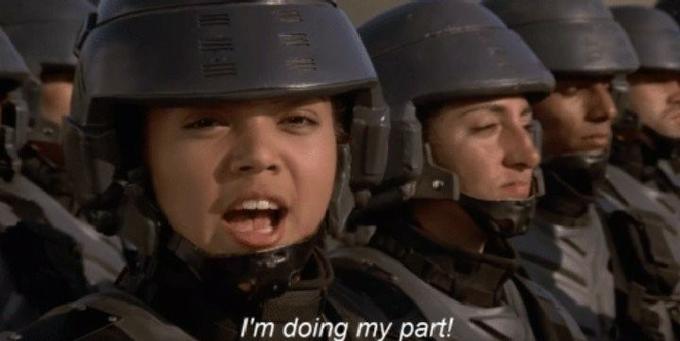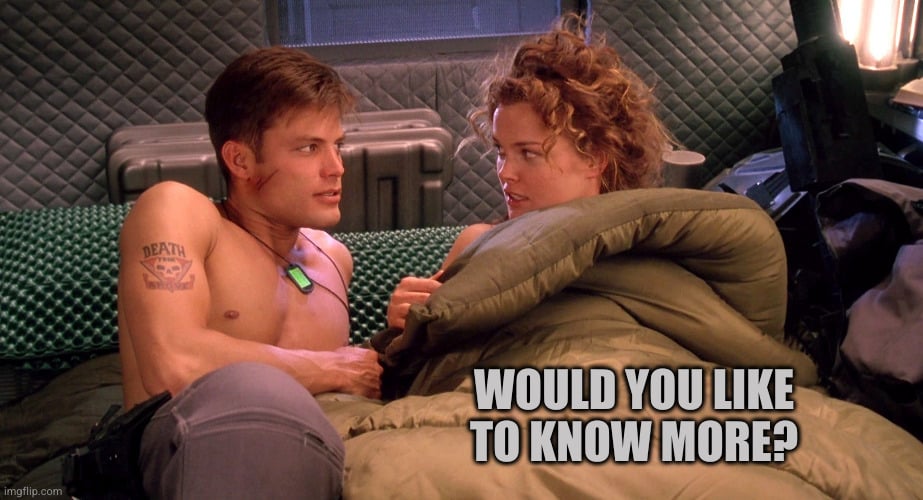It’s a bit like watching a pug dog try to breath.
Do vegans support this because it prevents mosquitoes from consuming animal flesh, or do they oppose it because it denies the mosquitoes their nature?
It’s nuanced because it could reduce suffering overall, but it could also disrupt ecosystems in ways we can’t predict and cause even more suffering. I think the latter is more likely. People have a tendency to paint animals they don’t like as insignificant to the ecosystem, but they’re nearly always incorrect. Wasps, for instance, are important pollinators, even if they do sting, and mosquitoes are an important food source, even if they are deadly. Anyone who advocates for eradicating species like these is doing so through a biased lens. We are nowhere near the point, technologically or scientifically, that we’d be safe playing god with the natural world like this – especially not with the massive damage we’ve already caused to the environment. Someday? Maybe. But not right now.
I do also find it horrific to forcibly alter a mosquito’s body so she can’t express her natural behaviors. After all – mosquitoes may cause harm, but they lack the capacity for moral reasoning, and thus cannot be evil. Thus, they don’t “deserve” any kind of torment. But my personal discomfort with this isn’t a moral argument.
So, uh, that’s my take on it as a vegan.
I’d argue that we can predict ecosystem effects. In America we annihilated malaria hot spots with DDT. Didn’t seem to crash any ecosystems.
Though it didn’t “crash” any ecosystems, DDT still accumulates in the environment, where it remains for a long time and causes ongoing harm to insects and the animals that prey on them. Though the most problematic use of DDT by far is in agriculture, its use against mosquitoes isn’t exactly without issue. Not to mention, mosquito populations can become resistant to DDT, requiring more of it to achieve the same effect.
The whole point is that DDT caused a mosquito crash and nothing bad happened. If we can crash mosquitoes without DDT, it would be better for everyone.
I wouldn’t say that nothing bad happened. America – particularly urban areas where anti-mosquito measures have been implemented – has been dealing with declines of important populations of birds and insects, and we don’t fully understand the exact causes. Which is to say, we don’t know what role mosquito population reduction has played in this. We have vaccines against mosquito-borne illnesseses, which I believe are preferable to eradicating a species and the potentially devastating consequences we could encounter.
I would argue that habitat destruction, the introduction of hypercarivores, and chemical spraying would have a much larger effect on bird and insect populations around urban areas than a reduction in mosquitoes, but I’ll admit that I haven’t done any research (primary or secondary) on the topic.
My point was that a genetic attack vector would have far less side-effects than DDT, and pointing out the flaws of DDT does nothing to criticize attacking mosquitoes genetically.
That’s true. Criticizing DDT was off-track.
Didn’t seem to doesn’t necessarily mean it didn’t happen, it can be difficult to quantify. Most people don’t notice a lot of the constant large scale ecological devastation that does happen.
The real concern is that even if it was fine in one location, that can’t reliably be assumed to be the case for other ecosystems. This issue is really complicated, we’ve acted hastily in the past and done some insane lasting damage so I’d say it’s best to be careful.
All that said, even if I’m vegan and this whole thing makes me extremely uncomfortable, working to eradicate malaria is objectively good.
ebin pwn
I’m having a hard time actually finding a source for this. Just a few poorly written articles that basically cite this video as a source. Something this potentially impactful seems like it would make the rounds more, so I’m very skeptical.
I saw this posted on Twitter and the community notes said the person’s skin was too thick and it’s a normal mosquito.
As a Brazilian, I won’t feel sorry for these fuckers.
I’m from Buenos Aires and I say kill 'em all!
The only good bug is a dead bug.

LOL FUCK EM
Ok but mosquitoes historically are the #1 killers of humans, by an order of magnitude. This could be argued as a form of evolution. We simply engineered them out as a threat. GG get gud scrub, see you in 3 million years when you have your own AI generated bioengineering.
Ok but mosquitoes historically are the #1 killers of humans, by an order of magnitude
Homo sapien: am I a joke to you?
I’m pretty sure over history mosquitoes have killed far more people than people have.
Probably. But it’s also a bit of a difficult question to compare the two.
One prominent estimate is that about half of all humans who have ever lived died from mosquito-related illness, about 50 billion of the 100 billion humans who have ever lived.
For humans, it’s estimated that about 3-4% of paleolithic humans died from violence at the hands of another person, and that number may have risen to about 12% during medieval history, before plummetting in the modern age.
But that’s the comparison of direct violence versus illness. Humans have a strong capacity to indirectly cause death, including by starvation, illness, indirect trauma. How do we count deaths from being intentionally starved as part of a siege? Or biological weapons, including the time the Nazis intentionally flooded Italian marshes to increase malaria? Do we double count those as both human and mosquito deaths?
And then there’s unintentional deaths, caused by indifference or recklessness or negligence. Humans have caused famines, floods, fires, etc.
So yeah, mosquitoes probably win. But don’t sleep on humans. And remember that the count is still going on, and humans can theoretically take the lead in the future.
According to google, yeah. Mosquito-borne diseases are responsible for 52 billion deaths. I was extremely surprised myself.
Tbh I wouldn’t be sad if we genetically modified mosquitoes to breed them out of existence like we’ve done with screw worm.
My only problem with it is the fact that you’re taking a major insect class out of the ecosystem and later on down the line it might have serious implications. There will never be enough research on the effects of it until it’s too late to reverse. I hate mosquitoes (I live in Southern LA.) but I don’t think this is the answer.
I think there was a campaign in china in the mid 20th century that tried to exterminate a bunch of pests like this and it lead to catastrophic famines or something.
“The Four Evils Campaign” I think it was called.
Not sure about that, but there was an account of something similar in India, I believe, where there was a chemical agent involved that buzzards were extremely susceptible to and wound up killing off most, if not all of the population. This led to carcasses being left to rot and then became vectors for disease and basically led to a chain reaction of events that caused a few million people to die.
I don’t know if killing off mosquitos would have quite as a profound effect as this, but there are so many things I feel like we have almost no understanding of when it comes to the natural world to say either way.
I’ve read in a few comments here that there are studies saying that it wouldn’t have a crazy effect - if anyone could link them so I can give them a read, I would appreciate it.
Sparrows. China killed them all then freaked when locust are all the crops. Millions died from famine. They had to import and reintroduce sparrows.
- What screw worm??
- Exactly.
what frost giants?
Vote odin
I think it’s a genius solution to the explicit problem, but a terrible solution in a larger scope. There are many animals that feed on mosquitos, and they would suffer from massive decreases in mosquito population. This includes birds, frogs, bats, fish, and other insects (many aquatic animals eat mosquito larvae). I would hate to see a cascading reduction in animal populations as a result of these tactics.
I get the concern, and it’s a good concern to have when you’re talking about what would be such a huge shift in so many ecosystems…
…buuuuuut…
I have to believe this change would happen slowly… mosquitoes wouldn’t just go extinct over a holiday weekend. It’d take years, if not decades, of dedication to the eradication strategy and even then, certain populations may prove immune to the best efforts of science.
That being said, even if it did execute as planned, I feel like the gradual decline of the mosquito would coincide with a gradual increase in other invertebrate species that would fill that niche. So as mosquito populations slowly declined in a local pond or creek, you’d see things like say chironomids (midges) thriving with the reduced competition for habitat, and the fish that ate mosquito larvae replacing that part of their diet with more midges.
Not saying there couldn’t be other complications, but I don’t think we’d see results fast enough that we’d end up with a broken link of the food chain leading to ecosystem collapse.
The Aedes Aegypt can go fuck itself with all the diseases it spreads to us. Also, anywhere where it showed up as an unwanted guest, like all Americas, nature will just roll back 3 centuries or so.
Genetically engineer them to grow to the size of Cessna. Ride them to battle
Right, but consider:
Fuck them bugs
Ironclad reasoning. Flawless execution. Give this person a doctorate

Hey, most bugs are cool and an important part of their ecosystem.
Mosquitoes tho ? Yeah, fuck them.
as much as i’d love to agree with that-
mosquitos are pollinators and an important food source for quite a few animals. Our eco system would not be fine if we got rid of them
Iirc the pollinators aren’t the bloodsuckers.
Bees are pollinators because they go to flowers and collect and move pollen.
Mosquitoes don’t have time to hang out in flowers because they’re busy screaming in your ear at 2 AM.
First, they aren’t critical in either of those roles, and second, there are a few thousand species of mosquitoes, and only five of them cause issues with human health. Get rid of those five, and you haven’t caused much ruckus. The others will be fine in their continued parts.
Now, that being said, nobody knows for certain what will happen if all five are completely eradicated, but the sentiment above seems to be the consensus among people who have studied them.
That… That is a price I am willing to accept.
Total mutual destruction is the only way™
The largest type of mosquito in the Americas is an invasive species. There would be no harm done wiping them out.
We gave a mosquito gender dysphoria?
We have created tomboy mosquito. Humanity has peaked.
I find the compromise acceptable. Please roll out the mosquito killing technology asap.
Harbor freight sells an electric flyswatter. The time is now!
I’d like to see any scientific study that reassures at least a little that this won’t have terrible ramifications for ecosystems and the food chain.
We know too little, we are shortsighted and we have a bad record of intervening with nature.
It’s a pretty ineffective strategy, but I’m just going off this one photo.
If it’s genetic, and the females can’t get a blood meal, then they won’t lay any eggs to pass on those genetics and just die.
Then the ones without that gene will lay all their eggs and the next generation will be unchanged and they have to spend all that money again to do whatever they did which had no effect.
Knowing a bit about crispr my understanding is that crispr is the technology that can be used to circumvent that scenario by making the effects kind of like an genetic time bomb
I actually love seeing mosquitoes struggle to survive. I don’t care if they’re incapable of morality, they’re evil and I hate them.
I hate them too but they are just trying to eat and breed, just like us. So kill them with mercy.
No to that entire comment.
Maybe to that entire comment.
Yeah they’re not like wasps, hornets, and yellow jackets, who know nothing but hate and malice in their yellow and black striped hearts.
Yes to that entire comment.
If they weren’t one of the biggest spreaders of viruses you’d be right, but, that’s my god damn blood, I made it, it’s mine to keep, inside of me preferably.
We genetically engineered mosquitoes to have gender dysmorphia - weird times.
They are turning the
frogs gaymosquitoes trans!
This is what vegans want. They want to take your virile bloodsucking proboscus and replace it with a limp dick fruit licker.
BAN ALL VEGANS
(Small /s)














